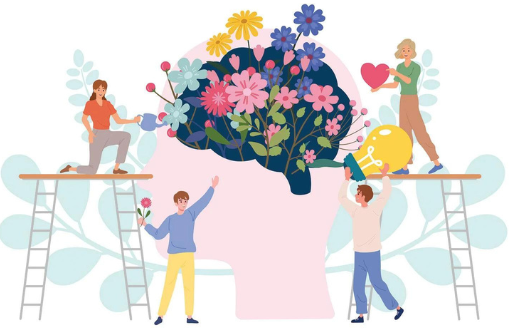Nurturing mental health as a couple in recovery is a vital component of building a strong foundation for lasting sobriety and a fulfilling relationship. Understanding what mental health disorders are associated with substance use disorder and how to address these as a couple can be helpful for both prevention and treatment.
What is comorbidity?
Comorbidity is when two disorders occur in the same person, simultaneously or one after the other. Research surveys have found that about half of those who experience a mental illness during their lives will also experience substance use disorder (SUD) and vice versa. The disorders can interact and exacerbate each other, which can significantly affect progress, especially as symptoms overlap, which makes diagnoses difficult.
What are the mental health disorders associated with SUD? Research shows high rates of anxiety disorders, depression, bipolar disorder, attention-deficit hyperactivity disorder (ADHD), autism spectrum disorders, psychotic illness, or borderline and antisocial personality disorders as common comorbidities for SUD. Just to take ADHD as an example, several large studies have found ADHD is five to ten times more common among those with SUD than in people without the condition. Among adults being treated for SUD, the rate of ADHD is about 25 percent.
What are the treatment challenges and opportunities?
The challenges of having SUD with comorbid disorders can present more difficulty in diagnosis, sticking to treatment, severity of symptoms, and receiving a coordinated approach to treatment. However, research is promising for a more integrated treatment which is preferred to separate treatment of each diagnosis. Cognitive behavior therapy has been found to be helpful as an integrated treatment.
You and your partner can help by becoming educated and advocating for the best treatment strategies. If either of you suspect an undiagnosed mental health issue, it is important to obtain a comprehensive assessment from professionals who also understand the complexity of SUD. The current “gold standard” for SUD with comorbidity is: therapy, medication, and community. It is important to resist the stigma against medication promoted in some 12-step programs.
What can you do as a couple?
Mental illness can affect many aspects of life. This includes intimate relationships where communication and education are paramount. Explaining how your symptoms impact you and defining boundaries to provide a safe space for both you and your partner is crucial. Communication around both parties’ needs during acute episodes and how to ask for help when needed is an important planning conversation.
If your symptoms have elevated or you and your partner need extra help for growth in the relationship, it may be time to seek couples’ therapy. Independent therapy for both parties can bring clarity to what each person is bringing into the relationship. The better we can be individually, the better we can be in the relationship.
By prioritizing open communication, seeking professional help, setting boundaries, and practicing self-care, you can navigate the challenges of recovery together. With patience, compassion, and resilience, you can emerge from this experience stronger and more connected than ever before.
Elaine Shamos, MPH, has 30 years experience as a public health professional and is the former director of Dartmouth’s Women’s Health Resource Center. Glenn Simpson, LCSW, CADC, has a private practice specializing in substance use disorder, and couples therapy. They are working together on a book for couples in recovery.



